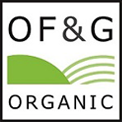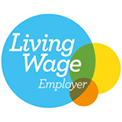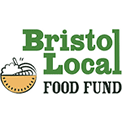BPA in Tins
Bisphenol A (BPA)
Bisphenol A (BPA) is not used within the lining of our canned products or steel lid linings of glass jars.
All Essential Trading canned goods and glass jar lids are Bisphenol A (BPA) non-intent (not intentionally added), abbreviated by BPA-NI.
“BPA non-intent” refers to the fact that Bisphenol A (BPA) is ubiquitous in the natural environment, and very small amounts may be detected in non-BPA substances, as current technology measures in parts per billion. It is therefore suggested to refer to “BPA non intent”, rather than “BPA-free” as a more accurate term for these circumstances.
The following regulations are pertinent for food storage materials:
- EU Regulation 10/2011 for Plastics Materials & Articles Intended to come into Contact with Food
- EU Directive 2002/16/EC Use of Certain Epoxy Derivatives
- Plastic Materials & Articles in Contact with Food (ENGLAND) Regulations 2012
Steel tin cans made from two or three pieces of tin-coated steel for food storage must be lightweight whilst being able to maintain structural integrity. Once sealed, food products are pasteurised at various temperatures dependent upon time and product type. The enclosed food may attack the tin then the steel. Therefore the majority of food cans are lined in some way to prevent pitting and corrosion. The may also affect the preserved food, altering its organoleptic properties such as taste (metallic), aroma or colour. Hydrogen can also be produced via can deterioration causing swelling in the can, hence a ‘blown’ can.
To prevent this, storage cans may be lined with a variety of resins such as Epoxy, Phenolic, Polyesters and vinyl resins. There are many other potential coatings. However, their use is restricted to the type of food, process and can used.
The European Union (EU) Regulation 10/2011 replaced Directive 2002/72/EC and the vinyl chloride monomer Directive and is of relevance for all plastic or polymer materials and articles that are intended to come into contact with food. Examples are base or semi- 2021 finished food contact materials, kitchen utensils, packaging and food processing equipment. The Regulation does cover specific rules for the implementation and is a specific measure for plastics (PIM = Plastic Implementation Measure) as mentioned in the European Framework Regulation EU 1935/2004.
Product packaging may be required to withstand pasteurisation heat treatment processes (>1400 C) and authorised for all types of food. Where foodstuffs contain a high percentage of fat (such as coconut oil), increased migration in the finished product is to be expected. All EU applicable limits for overall and specific migration must be complied with.
BPA is a chemical compound used in the manufacture of polycarbonate plastic food contact materials such as reusable plastic tableware and can coatings (as protective linings). EFSA (The European Food Safety Authority) completed a risk assessment of BPA in 2015. Canned foods were identified as major contributors to dietary BPA exposure.
Their analysis gave results that BPA poses no health risk to consumers because current exposure to the chemical is too low to cause harm. The ‘safe level’ known as the tolerable daily intake (TDI) was lowered to 4 micrograms per kilogram of body weight per day.
If you have any further questions about our BPA statement then please contact our Quality Assurance Team.









